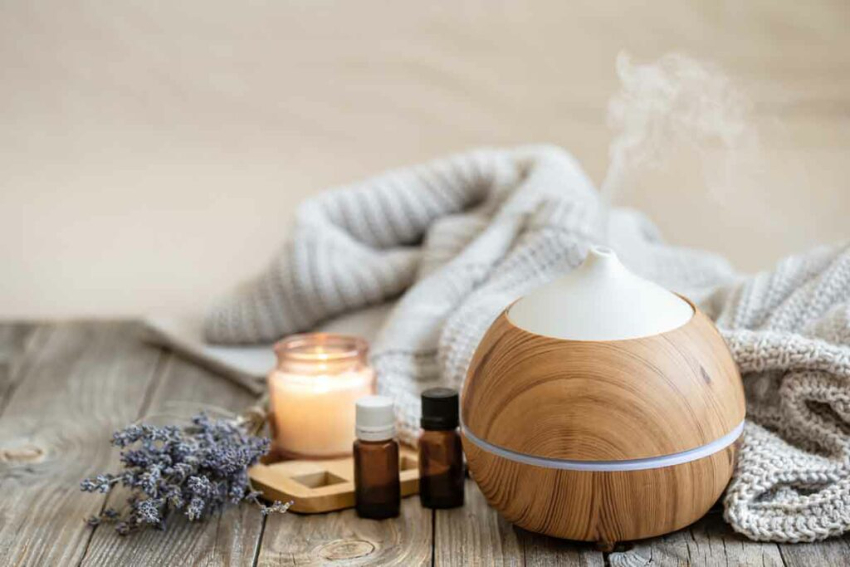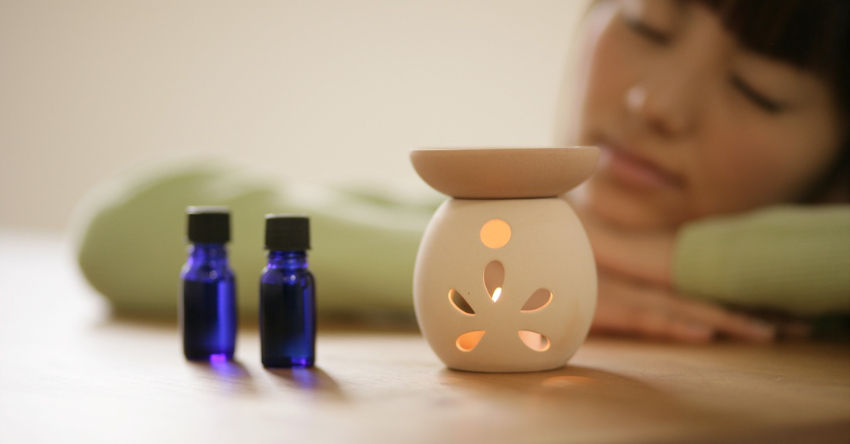
The door of Ch’an is entered by Wu. When we meditate on Wu we ask “What is Wu?” On entering Wu, we experience emptiness; we are not aware of existence, either ours or the world’s.
E-MAIL: admin@relaxmid.com
The use of scent has always been proven as a way to calm the body and mind. Essential oils, derived from plants, is a natural, as well as an effective, way to stimulate the mind with aromatherapy. Aromatherapy is an invaluable ally both to relieve stress after a busy day or to deepen your meditation practice. In this article, we’ll take a look at how aromatherapy works, what its benefits are for relaxation and mindfulness, and how you can add to your daily routine.
Aromatherapy is a holistic practice that uses essential oil therapeutic properties for physical as well as mental well being. These oils, grown on trees, flowers, herbs, are usually applied to the skin during massages, baths, and meditation.
The idea behind essential oils touching off this limbic system or brain’s emotional center, which affects things like mood, stress, and how it affects physiological things like your heart rate and breathing.

What you are smelling is being directly controlled in the brain by its limbic system (cerebral cortex), which controls emotion, memory, and arousal. Essential oils come in the form of molecules that when inhaled, their molecules bind to olfactory receptors in the nose and send the signals to the brain that ultimately trigger emotional responses. For example:
Aromatherapy is a proven relaxation and mindfulness tool as scientific studies show that certain essential oils can help reduce cortisol (stress hormone) levels and markers of well being.
Some essential oils, like lavender, chamomile and sandalwood have soothing properties that can help soothe the mind and body. These scents can help you breathe in ways that will reduce feelings of tension and anxiety.
Example: Lavender oil diffuses in the evening will give you a tranquil environment for your mind to get ready for rest.
Sleep disturbances are highly treatable by aromatherapy. Ylang ylang, vetiver and cedarwood oils are all very relaxing oils when use leads to falling and staying asleep.
Example: Lavender or chamomile oil a few drops on your pillow will help you sleep a restful night.
Stress generally goes hand in hand with muscle tension. It can also help to soothe sore muscles with essential oils like eucalyptus or peppermint diluted in a carrier oil, and have the aroma help calm the mind that has perhaps been a little too worked up.
Aromatherapy can help enhance mindfulness (as the practice of staying present and fully engaged at the moment). Using essential oils intentionally can anchor focus, deepen meditation and enrich your experience.
Frankincense, patchouli, and vetiver are ground oils that balance you out and make you feel grounded.
Example: Dropping frankincense oil on the flesh near your wrist before you meditate may be helpful in terms of focusing the mind.
Floral oils such as rose and jasmine can uplift you and calm your mood which can make it easier to confront thoughts during mindfulness exercises.
Eucalyptus or peppermint opens up airways, substances which encourage slow, deliberate breathing, a focal point of mindfulness practices.
Example: Peppermint oil can be sniffed before a breathing exercise to enhance sensation of each breath.

Essential oils are added into your air using a diffuser that then scents your space with healing scents. Ideal for home or work, this method also creates a calming atmosphere.
Recommended Oils: Relaxation – lavender, uplifting energy – orange, focus – sandalwood.
This is where you dilute essential oils with a carrier, like coconut or almond oil and apply to the pulse points—your wrists or temples, for example.
Example: And during stressful moments rub a bit of diluted lavender oil onto your temples.
By adding a few drops of essential oils into your bathwater, you can now create the experience of a spa for a soothed whole body and mind.
Recommended Blend: Lavender, chamomile, and ylang ylang for deeply relaxing soak, 3 drops of lavender, 2 drops of chamomile, 1 drop of ylang ylang.
Use candles infused with essential oils to combine the benefits of aromatherapy with the warm, calming ambiance of candlelight.
Example: Deep inhale through your nose, smell the eucalyptus oil, hold your breath for a few seconds, then slow breathing out.
Not all essential oils are the same. For the best results choose 100% pure high quality oils free of synthetic additives. Look for oils that suit your specific needs:
While aromatherapy is generally safe, it’s important to use essential oils responsibly:
Aromatherapy is natural, accessible and can help to enhance relaxation and mindfulness. If you can incorporate essential oils into your routine every day, you can easily create a sanctuary of calm amidst the chaos of our fast paced, stressful life. The scents from nature are gentle yet powerful ways to bring you emotional balance and mental clarity, whether it comes through diffusers, topical applications or meditative practices.
Begin small, try out other scents, and see how this is a practice that changes your well being. With mindfulness and suitable essential oil, you ‘ll be fine.
